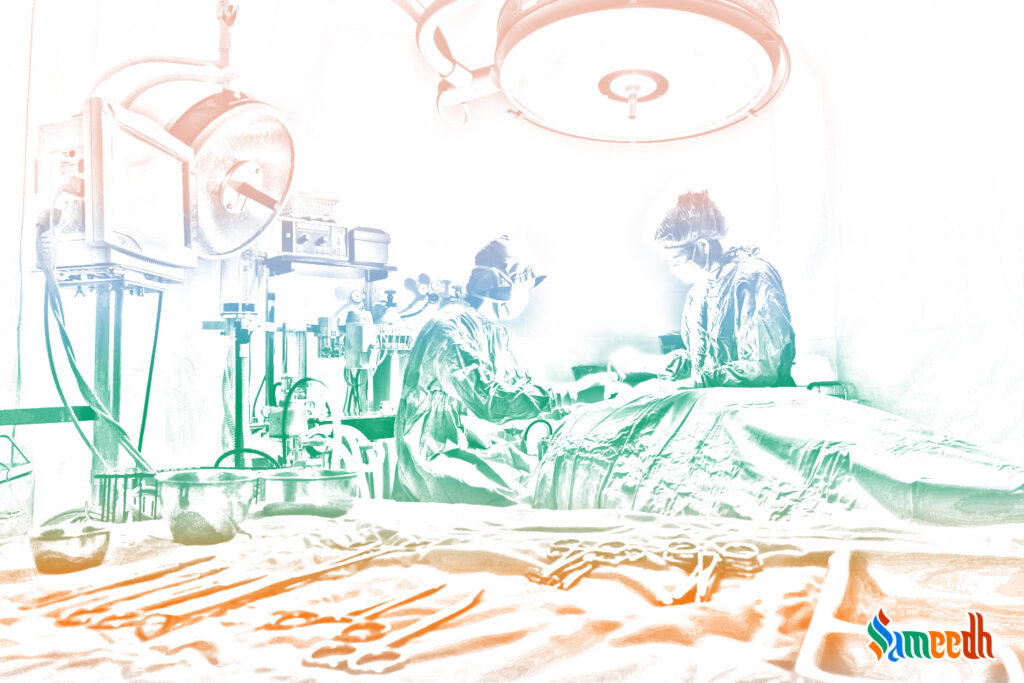According to Sushrut, surgery has the potential of generating immediate effects on the human body. It increases the span of life on the Earth by enabling people to successfully perform their duties and keep a consistent degree of proficiency in life.

Sushrut is regarded as the father of surgery. If the scientific process can be followed back to its beginning, it most undoubtedly begins in an unmarked period of ancient history. Regardless of the fact that medicine and surgery have evolved by leaps and bounds in recent decades, plenty of the methods used today are still rooted from the techniques of ancient Indian gurus.
Shalya tantra: ancient surgical science
In general medical school, surgery plays a significant role. Shalya Tantra was the name of an ancient surgical science. Tantra means movement and Shalya denotes a broken arrow or a sharp portion of a weapon. Shalya Tantra encompasses all practices with the goal of removing elements that cause pain or suffering in the body or mind. Due to the prevalence of conflict during the time, the injuries inflicted encouraged the establishment of surgery as a refined scientific discipline.
Surgery during the Rigvedic period
The Rigved, the oldest account of ancient Indian civilization, mentions Ashwini Kumars, also known as Dev Vaidya, as chief surgeons during the Vedic period, who performed rare legendary surgical operations including the first plastic surgery to re-join the head and torso of saint Chyavan after Daksh cut his head off. Reejashva’s eye operation, the implantation of Phushna’s teeth in the toothless mouth, and the transplantation of an elephant’s head on Bal Ganesh, whose head was chopped off by Bhagwan Shiv, were one of their other renowned achievements. They gave Bispala, King Khela’s wife, an iron leg after she lost her leg in battle.
During the time of the Rigved, Ashwini Kumars performed transplants, which was apparently around 5000 years ago. To existing medical knowledge, the Rigvedic period’s remarkable surgical skill may seem like a fiction or a wonder. From the Ashwini Kumars, Chavan, and Dhanvantari through Atreya Agnivesh and Sushrut, surgical expertise has been passed on from generation through the centuries. Craniotomy and brain surgery were also performed in a more advanced manner.
Sushrut: the father of surgery
Even in ancient times, India performed cosmetic surgery and dental surgery. Models were used to efficiently train students. Skin grafts include when patches of skin are transplanted from one part of the body to the other. Sushrut’s treatise provides the first documented history of a rhinoplasty, a process that utilizes a patch of skin from the forehead to rebuild a nose and is still practised today. Sushrut regarded surgery as and perhaps the most essential discipline of medicine, claiming that surgery has the virtue of providing immediate effects through surgical equipment and materials, and hence is the most valuable of all the medicinal Vedic texts.
Sushrut’s writings on the discipline include all of the fundamental concepts of surgery, including planned precision, haemostasis, and perfection. Various reconstructive techniques for numerous forms of deformities have been described by him. Sushrut Samhita is a collection of his works. He specifies 60 varieties of upkarma for wound care, 120 surgical equipment, and 300 surgical operations, as well as an eight-category classification of human surgeries.
Apart from general surgery, Sushrut provides a detailed overview and explanation of the treatments of 12 different types of fractures and six different types of dislocations. Even now, orthopaedic specialists are fascinated by this. Traction, manipulation, apposition, stability, and postoperative physiotherapy are all mentioned in the literature.